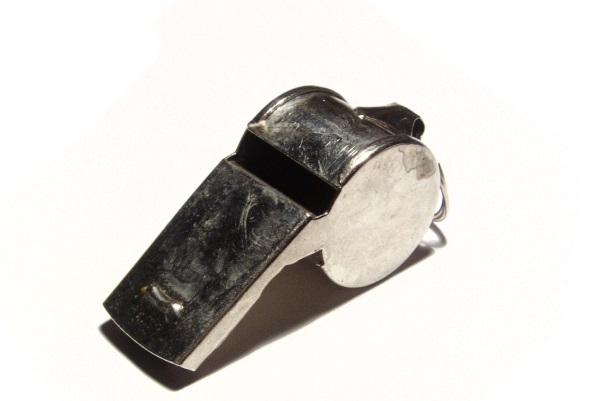Reporting malpractice in the workplace is now not only acceptable, but expected. What do school staff need to know, and who can they trust?

Source: Richard Wheeler (Zephyris) 2007
Few people would know the name of Dr Stephen Bolsin had he not become famous – some might say infamous – for making public knowledge the high mortality of babies following heart surgery at Bristol Royal Infirmary.
His actions directly effected a change in procedure that eventually reduced the mortality rate. It also prompted the Kennedy Report, which enshrined the policy of ‘clinical governance’ for speciality hospitals.
Hounded out of work by an angry NHS and resettled in Australia, Bolsin had become the NHS’s first whistleblower.
Since Bolsin, the climate has changed. Not only is it now acceptable to raise concerns about malpractice, it is almost expected. Whistleblowing is not limited to health, it applies to all areas of public life, including education.
The government make clear that ‘you’re a whistleblower if you’re a worker and you report certain types of wrongdoing. This will usually be something you’ve seen at work - though not always.
The wrongdoing you disclose must be in the public interest. This means it must affect others, namely the general public.
As a whistleblower you’re protected by law - you shouldn’t be treated unfairly or lose your job because you "blow the whistle". You can raise your concern at any time about an incident that happened in the past, is happening now, or you believe will happen in the near future.’
This is important regulation because it offers legally binding protection to:
It is important to understand that not all complaints can be whistleblowing. For example, some local authorities have been responsible for some very dubious personnel practices, sacking headteachers without proper reasons or procedures in exchange for a pay-off and confidentiality clause.
Such gagging clauses are not valid in the case of whistleblowing, but wronged headteachers - or anybody else in a school for that matter - can only make a complaint if:
Personal grievances do not count as whistleblowing unless the case is in the public interest. Being ‘in the public interest’ is the key phrase.
In February 2015, Sir Robert Francis QC published a report on poor care practice in the NHS. It indicated that, even at that time, NHS staff still found it difficult to report their concerns and could be penalised for doing so.
Although written about the NHS, the report’s findings have been applied to other fields, including those covered by Working together to safeguard children.
The report sets out its principles in five ‘themes’. Safeguarding expert Andrew Hall has pointed out that, although written in a health context, four of these can be adopted by a school for similar whistleblowing arrangements.
Every maintained school should have a whistleblowing policy. This is not simply a matter of personnel practice: it is an essential component of safeguarding.
After all, if any of the whistleblowing circumstances apply, the safety and welfare of pupils could be compromised.
Optimus members can download and adapt our whistleblowing model policy to explain what whistleblowing is and who to contact to raise a concern.
Schools should identify a member of staff and, where applicable, a governor to hear concerns. They should also identify the appropriate contact from the local authority (LA).
Concerns can be reported to the school leadership or to the LA or trust. If for any reason this is not an option, a report can be made to a ‘prescribed person’.
For education, there are three prescribed people.
For reporting other matters, the government has published a full list of prescribed people. Alternatively, a whistleblower can talk to their solicitor or to their MP.

Informants (like Kim Basinger, above) can request confidentiality, in which case every effort must be made (by Kevin Spacey and company, also above) to safeguard their identity
Whistleblowing may be carried out anonymously but, in that case, proceedings are unlikely to go any further.
However, the informant can request confidentiality, in which case the person or body to whom the report is made is expected to make every effort to safeguard their identity.
If, after blowing the whistle, an employee feels they have been treated unfairly, there are actions they can take.
For further information, they should contact the Advisory, Conciliation and Arbitration Service (Acas). A case of unfair dismissal must be raised within three months.
They say that people don’t leave roles, they leave managers. It is very tempting to report bad school management practice as whistleblowing, but the question to ask is, ‘is this in the public interest?’
If students are put at risk, then there is a case for whistleblowing. If not, it is likely to be a grievance, for which there are separate procedures.